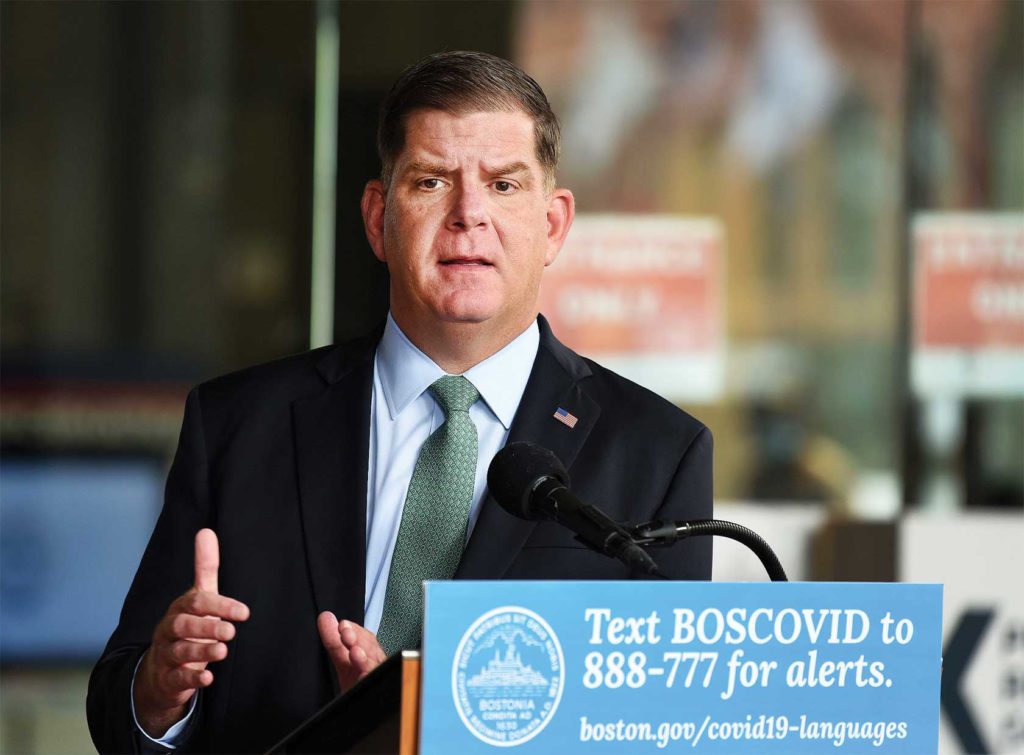Eviction moratorium extended to end of year
Mayor’s decision brings needed relief to public housing residents

Mayor Martin Walsh and the Boston Housing Authority announced Friday that they will extend the moratorium on “nonessential” evictions for Boston’s public housing residents until the end of 2020.
“Our public housing communities are a critical and irreplaceable piece of the fabric of our city, and we want to make sure they are supported during these difficult times,” the mayor in a statement sent to news media. Among other resources to help renters at this time, such as the Rental Relief Fund and state legislation to extend the moratorium, this move allows time for renters to establish payment plans as COVID-19 cases increase across the nation.
The mayor’s moratorium is specific to BHA public housing residents, meaning that other housing developments and apartment buildings are not technically subject to it. It also excludes evictions filed on the basis of criminal activity, or to protect the health and safety of other BHA residents — but ensures that BHA residents cannot be evicted just because they cannot pay rent.
State legislation filed by Rep. Kevin G. Honan calls for an extension of a bill Governor Charlie Baker signed in April that mandated an eviction moratorium for 120 days (or until 45 days after the state of emergency is lifted), as long as tenants can demonstrate that they are unable to pay. Honan’s extension would ban evictions and foreclosures until 12 months after the state of emergency is lifted, as well as stopping negative credit reports and penalties for late mortgage payments to protect landlords.
The effects of COVID-19 on Boston area renters have been harsher for people of color. Between March 1 and April 20, 78% of evictions filed were in communities of color, despite the fact that most renters do not live in majority minority neighborhoods, according to a recent MIT study. And even with a moratorium in place, many renters still appear to be at risk.
“On our COVID-19 Housing Hotline, we’ve received over 1,200 calls from Boston area residents since the eviction moratorium went into effect on April 20, 2020,” Helen Matthews, communications director of City Life/Vida Urbana told the Banner. “And this is only a fraction of Boston area residents that are at risk of displacement once the eviction moratorium expires.”
City Life Executive Director Lisa Owens added that the hotline is open, and that renters should call if they are struggling with housing. In the meantime, people can get involved with the fight against surging evictions by signing a petition in support of Honan’s bill, she said.
If the state of emergency is lifted before the year is over, and there’s no indication of that, Boston’s public housing residents will have significant time to recover from mass job loss and new working conditions before worrying about being evicted, under the mayor’s extended moratorium.
For the rest of Boston, Matthews said, the future is less clear.
“If Massachusetts’ eviction moratorium expires on August 18, the number of Boston area residents at risk of displacement at that time will be several times greater than the number that have contacted us during the moratorium






